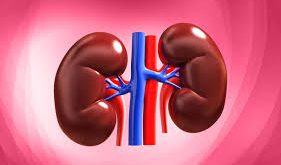In the symphony of life, there are certain topics that seem to be played at a hushed volume, particularly when it comes to men’s health. While public conversations around other health issues like heart disease and diabetes are commonplace, discussions about prostate cancer often remain in the shadows. This silence is not just a matter of social etiquette; it’s a significant barrier to early diagnosis and effective treatment. In India, where rising incidence rates are a growing concern, it’s more crucial than ever to bridge this gap by raising awareness and, most importantly, breaking the pervasive stigma surrounding prostate cancer.
The Indian Context: A Growing Health Challenge
Prostate cancer is a malignant tumor that originates in the prostate gland, a small, walnut-shaped organ located below the bladder in men. Recent data from the National Cancer Registry Programme indicates that this once-rare cancer is becoming increasingly common, especially in metropolitan areas. A recent report highlighted a rising trend in new prostate cancer diagnoses, with a significant proportion of cases detected at an advanced or metastatic stage. This late-stage diagnosis is particularly alarming as it often leads to more aggressive and complex treatment plans, which can have a profound impact on a patient’s quality of life. The reasons for this trend are multifaceted, but a key factor is a lack of widespread awareness and the stigma that prevents men from seeking timely medical help.
Breaking the Stigma: Why the Silence?
The stigma around prostate cancer stems from a combination of cultural and psychological factors. The prostate gland’s anatomical location and its role in urinary and reproductive functions often make men hesitant to discuss symptoms or undergo screening. The fear of an uncomfortable digital rectal exam (DRE) or the possibility of a prostate-specific antigen (PSA) blood test result leading to a biopsy can be daunting. Furthermore, the potential side effects of treatment, such as urinary incontinence and erectile dysfunction, are deeply personal and can affect a man’s sense of masculinity and self-worth. These fears and insecurities, often unspoken, create a cycle of avoidance that delays diagnosis. When men don’t talk about their symptoms, they don’t seek care, leading to a higher likelihood of an advanced-stage diagnosis. This silence is a silent killer, and it’s a cycle we must actively work to dismantle.
The Power of Awareness and Early Detection
The good news is that when detected early, prostate cancer is highly treatable. A study from Mumbai found that patients who underwent prostate cancer treatment with surgery had a significantly better survival rate. This underscores the importance of a proactive approach. So, what can be done to empower men and their families?
- Understanding the Risk Factors:Age is the most significant risk factor, with the risk increasing considerably after the age of 50. Family history of prostate cancer is also a key indicator. Men with a family history should have a conversation with their doctor about starting screening earlier. Other factors, like obesity and lifestyle choices, also play a role.
- Recognizing the Symptoms:Early-stage prostate cancer often has no symptoms. However, as the cancer progresses, signs may appear. These can include a frequent or urgent need to urinate, a weak or interrupted urine flow, blood in the urine or semen, and pain in the lower back, hips, or thighs. While these symptoms can also be caused by non-cancerous conditions like benign prostatic hyperplasia (BPH) or prostatitis, they should never be ignored.
- Demystifying Screening:Screening typically involves a combination of a PSA blood test and a DRE. Recent advancements in India, have established new, age-specific PSA reference values tailored for the Indian population, which will make screening more accurate and effective. While these tests can cause anxiety, they are the first and most critical step toward early detection and improved outcomes.
Paving the Way Forward
Prostate cancer may be silent, but it doesn’t have to remain invisible. By raising awareness, challenging stigma, and promoting timely screening, we can bridge the gap between diagnosis and cure. Let’s empower men across India to speak up, to check proactively, and to claim control over their health futures. Take action today, start the conversation, schedule a health check, and be part of breaking the silence.
By Dr.Sachin Wani, Consultant – Surgical Oncologist, HCG Cancer Hospital, Vadodara
 Newspatrolling.com News cum Content Syndication Portal Online
Newspatrolling.com News cum Content Syndication Portal Online







